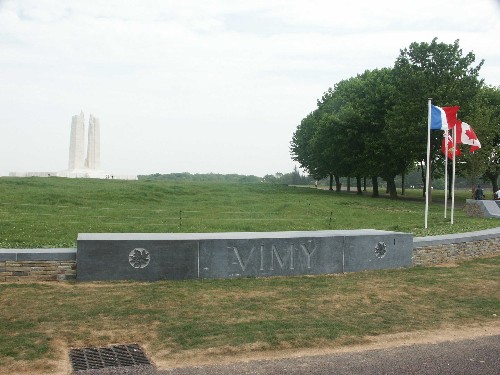|
As the war clouds gathered prior to 1914, McGill
University began to
prepare itself
for a role in support of the nation and Empire. The University's engagement began as far back as
1905
when the first university officer training corps in North
America
was created. By 1913 the Canadian
Officers Training Corps (McGill University Contingent) stood at a
strength of
70 individuals. With war declared in August 1914 the University
organized
an additional McGill Provisional Battalion of 300 volunteers. By the
end of the
war six full companies were organized for overseas duty, partly as a
result of
compulsory military training begun in 1916. In addition to serving in a
number
of Canadian infantry battalions and siege batteries, the university
also
produced two much-needed field General Hospitals.
 In
all 3,059 McGill
men enlisted in the Active Forces. Of those 363 lost their lives and
791
decorations were awarded, including two Victoria Crosses. Women,
not eligible for the Active Forces, also
contributed in important ways. Many were ambulance drivers working
close to the
various fronts (including France,
Belgium
and Serbia),
nurses and volunteers – particularly in service to the Red Cross.
McGill also contributed research into areas such as
armoured
vehicles, acoustics, anti-submarine technology, explosives
and medical
research and practice. In
all 3,059 McGill
men enlisted in the Active Forces. Of those 363 lost their lives and
791
decorations were awarded, including two Victoria Crosses. Women,
not eligible for the Active Forces, also
contributed in important ways. Many were ambulance drivers working
close to the
various fronts (including France,
Belgium
and Serbia),
nurses and volunteers – particularly in service to the Red Cross.
McGill also contributed research into areas such as
armoured
vehicles, acoustics, anti-submarine technology, explosives
and medical
research and practice.
At the conclusion of the war McGill was
recognized for the
contributions of its staff, students and graduates by governments
and
private foundations. After the war a number of memorials were installed
around
the campus and in 1926 the University produced the McGill
Honour Roll documenting the members of the university community
who were lost in The Great War. In the words of official McGill war historian Robert Fetherstonhaugh:
"In the period of the Great War, McGill
University experienced
pride in the
achievement of graduates, students, and staff members overseas and,
frequently,
grievous loss. Though each man of the 3,059 who served held in the
University's
regard a place that was peculiarly his own, tribute to all all was paid
in the
McGill Honour Roll, published in 1926. Prepared with admiration for the
services it recalled and pride in the fellowship it honoured, the
volume stands
as the great memorial in which McGill preserved, individually, the
service
record of her sons."
|

